- Home
- Barry Lyga
I Hunt Killers Page 2
I Hunt Killers Read online
Page 2
“Oh, Jazz.” G. William slid his sheet of paper closer to himself, as though by taking it away now he could somehow erase Jazz’s memory of reading it. “What are you doing? You need to stop obsessing about this stuff.”
“Easy for you to say. You’re not the one everyone thinks is gonna grow up to be Billy Dent, the sequel.”
“No one thinks—”
“Plenty of people do. You don’t see the way people look at me.”
“It’s in your head, Jazz.”
They gazed at each other for a long moment. There was a pain in G. William’s eyes that Jazz figured to be as intense as his own, though of a different flavor.
“Dead female Caucasian,” Jazz said in a clipped voice. “Found at least two miles from anywhere in any direction. Naked. No apparent bruising. Missing fingers—”
“You get all of that from here?” G. William waved the paper in the air. “You didn’t have that much time to look at it.”
Busted. He’d revealed too much. Even knowing that G. William was savvy, Jazz had still tipped his hand too soon.
Oh, well. He would probably have to admit this, anyway.…
Jazz shrugged. “I was watching.”
G. William slammed a fist on the desk and swore out loud. Something about that mustache and those big brown eyes made the swearing incongruous—Jazz felt like he’d just seen a nun do a striptease. G. William’s bushy mustache quivered.
“You know how I grew up,” Jazz said, his voice low and thick as they stared at each other across the desk. “The rumpus room. The trophies. It was my job to keep them organized for him. I understand these guys.”
These guys. Serial killers. He didn’t have to say it out loud.
G. William flinched. He was intimately aware of the details of Jazz’s upbringing. After Billy and Jazz (and Jazz’s missing mother), G. William knew the most about what growing up with Billy Dent had been like. He knew more than Gramma. More than Connie, Jazz’s girlfriend. More than Melissa Hoover, the social worker who’d been messing with Jazz’s life ever since Billy’s arrest. Even more than Howie, the only kid Jazz truly thought of as a friend. It had, after all, been G. William who’d found Jazz that night four years ago, the night Billy Dent’s reign of terror ended. Jazz had been in the rumpus room (a converted pantry in the back of the house, accessible only through a hidden hatch in the basement), doing as his father had commanded: gathering up the trophies so that they could be smuggled out of the house before the cops searched the place.
It should have been an easy task—Billy didn’t take large or complicated trophies. An iPod from one, a lipstick from another. The trophies were well organized and easily portable. Still, G. William got there before Jazz could finish. And Jazz truly didn’t know if he would have followed through with his father’s orders. He’d spent his childhood obeying his father’s every command, but as Billy Dent had become more and more erratic—culminating in the two Lobo’s Nod bodies—Jazz had begun to shake off the chains his father had bound him with.
And so he had stood there with all but one of the trophies in a large backpack, staring at the last one, the driver’s license of Heidi Dunlop, a pretty blond girl from Baltimore. And in that moment, Jazz had felt like he’d woken up for the first time in his life, as if everything else that had happened to him had been unreal, and now he was about to make his first and only true decision. As he tried to decide whether he would hide the trophies…or run and hide himself…or turn them over…fate took the decision out of his hands in the form of G. William, who came up through the hatch, puffing with exertion but pointing what looked like the biggest goddamn pistol in the entire universe right at Jazz’s thirteen-year-old junk.
“Let me help you,” Jazz insisted now. “Just let me look at the file. Maybe a few minutes with the body.”
“I’ve been doing this for a while. I don’t need your help. And it’s a little early to go barking ‘serial killer.’ You’re jumping the gun, kid. Serial killers have to have at least three victims. Over an extended period of time. This guy has one.”
“There could be more,” Jazz insisted. “Or there will be more. These guys escalate. You know that. Each victim is worse. And they experiment. Cutting off the fingers…You just have to look at things from his perspective.”
The sheriff stiffened. “I did that with your dad. I didn’t like doing it then. Don’t like the thought of it now.”
Finding Billy Dent had taken its toll on G. William, who had still been grieving for his recently deceased wife when the first of the Lobo’s Nod bodies showed up. He’d thrown himself with an obsessive fervor into tracking and catching Billy Dent, and while he’d succeeded, his sanity had almost been another of Billy’s victims. Jazz remembered the expression on G. William’s face when the sheriff had come up through the rumpus room hatch, that huge revolver pointed at him. With all he’d seen in his life—the bodies, the trophies, what his father had done to poor Rusty—very few things could haunt Jazz, but the look on the sheriff’s face that day was a regular star in Jazz’s nightmares. He’d never seen a man so utterly despondent and devastated, the gun steady as a rock even though the big man’s lips trembled when he shouted, “Drop it! Drop all of it! I swear to Christ I’ll shoot you!” in a high lunatic’s falsetto. G. William Tanner’s eyes had seen too much; if that night had not ended Billy Dent’s career, Jazz was certain that the next day would have seen G. William dead by his own hand.
It had been four years since then; G. William still saw a therapist every month.
Now G. William stroked his mustache with the thumb and forefinger of his left hand. Jazz imagined cutting off that forefinger. It wasn’t that he wanted to hurt G. William. It wasn’t that he wanted to hurt anyone at all. It’s just that he couldn’t. Stop. Thinking about it. Sometimes he felt like his brain was a slasher movie set on fast-forward. And no matter how many times he jabbed at the Off button, the movie just kept playing and playing, horrors assaulting him constantly.
For him, imagining cutting off that finger was an academic exercise, like a calculus problem at school. It wouldn’t take much strength. An easy trophy. What did that mean about the killer? Did it mean he was weak and scared? Or did it mean he was confident and knew it was best to take something quickly?
If G. William knew the thoughts that came unbidden to Jazz’s mind, he would…
“Let me help,” Jazz begged. “For me.”
“Go home, Jazz. Dead woman in a field. Tragic, but nothing more.”
“But the fingers! Come on. That’s not a woman who stumbled out there naked at night and fell and hit her head. That’s not Joe-Bob McHick smacking around his girlfriend and then leaving her to die.”
“We already had one serial killer in this town. Be a hell of a coincidence to have another one, don’t you think?”
Jazz pressed on. “At any point in time, it’s estimated there’s something like thirty to forty serial killers active in the United States.”
“I think,” G. William said, sighing, “that I’ve got a lot of work ahead of me, and you’re not helping any. We’ll figure this body out, along with all the other usual junk we have to do around here.” He gestured for Jazz to leave.
“You’re at least treating this as a reportable death, right?”
“Of course I am. I’ve got the medical examiner coming in first thing tomorrow morning for a complete autopsy, but Dr. Garvin is doing a quick work-up today. A woman’s dead, Jazz. I take that very seriously.”
“Not seriously enough to be going over the crime scene with tweezers. Or to cut down the vegetation to look for clues. Or to—”
G. William rolled his eyes. “Give me a break. What do you think this is? What kind of resources do you think we have here? I had to call in the staties and deputies from three towns over to do justice to that scene.”
“You should be looking at bugs and soil samples, and I didn’t see anyone casting footprint molds, and—”
“There weren’t any footprints,”
G. William said, exasperated. “And the other stuff…We have to contract out to the state for forensic odontology, for botanical services, for anthropology and entomology. We’re a small town in a small jurisdiction. Stop comparing us to the big boys. We’ll get the job done.”
“Not if you don’t know what the job is in the first place.”
“A serial killer,” G. William said, skepticism dripping from every syllable.
“How did you find the body?” Jazz asked, desperate for something that would prove his point. “You didn’t trip over it out there. Was it an anonymous call? If you got a call, that’s totally a serial killer making sure you see his handiwork. You know that, right?”
He’d gone too far—G. William could take a lot of abuse, but he didn’t cotton to condescension. “Yeah, Jazz. I know that. I also know that serial killers like to stick around and watch the cops work.”
The words slammed Jazz full in the chest, no less powerful and painful than if G. William had drawn his service revolver and put two slugs into his center of mass. Jazz was afraid of two things in the world, and two things only. One of them was that people thought that his upbringing meant that he was cursed by nature, nurture, and predestination to be a serial killer like his father.
The second thing…was that they were right.
And with the discovery of this new body, who could blame them? The odds of two separate serial killers picking a tiny town like Lobo’s Nod were beyond astronomical, so far beyond that it didn’t even bear serious consideration. Billy Dent was locked up. Thirty-two consecutive life sentences. The joke around town was that he wouldn’t even be eligible for parole until five years after he was dead. He was on total lockdown—twenty-three hours a day in a five-by-eight cinder-block cell—and had been since the moment he set foot in the penitentiary. He’d had no visitors other than his lawyer in that whole time.
When the original devil couldn’t do the crime, who did you look at next? His son, of course. If Jazz didn’t know for certain that he wasn’t involved in this murder, he would have pointed the finger (ha, ha) at himself. It made complete sense that the son of the local serial killer would kill someone. But just because it made sense didn’t make the thought any easier to bear.
“Th-that,” he stammered, “is over the line. I learned a lot from Billy, and I can use that to—”
“You go skulking around a crime scene, spying on me and my people. You march into my office and violate my privacy by reading my personal notes,” G. William said, ticking points off on his fingers as he went. Jazz couldn’t help thinking of the severed finger in its pristine plastic evidence bag, just sitting there like leftovers. “I could probably bring you up on some kind of charge, if I wanted to take five minutes to think about it. Demanding I let you in on a case, which would be highly improper, even if you weren’t a kid, and even if you weren’t Billy Dent’s kid.” He had lost track of the counting—his whole right hand was splayed out. “All those reasons, Jazz, and plenty more. All of them say I won’t let you help out.”
“Come on! You bring in experts all the—”
“You’re an expert all of a sudden?”
Jazz leaned in and they met over the desk, almost bumping into each other. G. William’s mustache and jowls quivered.
“I know things,” Jazz said in his strongest voice.
“You know too much and not enough,” the sheriff said, so softly that it caught Jazz off-guard.
“What are you saying?”
“I’m saying”—deep breath—“you learned a lot from him, but you want to be careful you don’t act too much like your daddy, now don’t you?”
Jazz glared at him, then wheeled around and stomped out of the office, slamming the door behind him as he went.
“Let me do this my way!” G. William called through the closed door. “That’s my job. Your job is to try to be normal!”
“Um, Jasper,” Lana said nervously as he flew past her desk. “Uh, good-bye?”
He didn’t even realize he’d ignored her until he was next to the Jeep, seething. He kicked the bumper with the flat of his foot; it complained with a metallic, grinding squeal and threatened to drop off.
I’ll show you what I learned from my father, he thought.
CHAPTER 3
Whenever Jazz needed to do something risky or vaguely illegal, he made sure to bring Howie along. This did not endear him to Howie’s parents, but if Jazz wanted to stay as human as possible, it was necessary: Howie kept Jazz close to the line of safety and legality. That’s because Howie was Jazz’s best (and only) friend. And also because Howie was so fragile that Jazz had to hold back in his presence.
Howie Gersten was a type-A hemophiliac, which meant that he bled if you looked at him too hard. The two had met when they were younger, when Jazz had come across Howie being tormented by a trio of older kids who weren’t quite stupid enough to cause any serious harm, but who reveled in poking at Howie’s exposed arms, then chortling over the bruises that blossomed almost immediately. Howie’s arms had taken on an almost lizardlike appearance, with overlapping bruises of blue and purple that looked like scales.
Jazz had been smaller than the other kids, younger, and they outnumbered him three to one, but even then—at the age of ten—Jazz had a rudimentary understanding of some of the more important weak spots in the human body. He’d sent the older kids packing with their own fine collection of bruises, including a couple of black eyes and fat lips, as well as one knee sprained just right—it would plague the kid for months. For his troubles, Jazz earned himself a bloody nose and an undying, unstinting friendship.
And the kind of friend who would come along when you had to break in to a morgue.
The police station was open twenty-four hours a day because it was a nerve center for the county’s law enforcement efforts. But at night, many hours after Jazz had left in a huff, it was just a skeleton crew, consisting of a deputy on duty and a dispatcher. Lana was still at the desk, having pulled the night shift. Jazz knew that would make this easy. Lana thought he was cute. She was right out of high school and he was a junior, so only a couple of years separated them.
“I’ll distract Lana,” Jazz told Howie, “and then you work your magic.”
“You sure you can keep her occupied?”
Jazz rolled his eyes. “Puh-lease.”
“The ladies love bad boys,” Howie said, striking what was supposed to be a tough-guy pose. “Gotcha. I will be your magic trick. Misdirection!” He waggled his fingers. “Abracadaver! Get it?” he added as they headed for the door. “Abracadaver? Get it?”
Jazz sighed. “I got it, Howie.”
Together, they walked into the police station, which was quiet this late at night. Lana looked up, then grinned a wide grin when she saw Jazz.
“Hi there!” she chirped.
Jazz sauntered over to her cubicle and leaned on the half-wall with both elbows. “Hi, Lana.”
“What brings you back?” she asked, her eyes very wide and earnest. This was going to be way too easy. “You stormed out of here before.”
“I just wanted to—”
Just then Howie came up to them, clearing his throat. “Okay if I get a Coke?” he asked, pointing to the back corridor, where an ancient Coke machine loomed large.
“Go ahead,” Lana said, not even flicking her eyes in his direction as he walked past them.
“I just wanted to apologize for the way I went out of here before,” Jazz said, pretending to give Lana all his attention. He cranked up the wattage on his smile. “I didn’t even say good-bye to you.”
As he chatted with Lana—who assured him that his apology wasn’t necessary, all the while lapping it up—Jazz watched Howie head for the second desk in the row behind Lana. He looked up at Jazz, who nodded quickly. Howie opened the top desk drawer, fished around, then closed it. A moment later, he rejoined Jazz at Lana’s cubicle.
“Done,” Howie said.
“Well,” Jazz said to Lana, “I guess we have to
go. School tomorrow, you know. But I just knew I wouldn’t be able to sleep tonight if I didn’t say something to you.” Another big smile.
Howie and Jazz were almost to the door when Lana called out, “Hey, Howie, I thought you were getting a Coke?”
Jazz shot a glare at Howie, who shrugged meekly. “Turns out I don’t have any change.”
They got outside before Lana could say anything more. “You’re an idiot,” Jazz told him.
“And yet, I recover well.” He dug into his pocket and produced the block of wax Jazz had given him earlier. “Still an idiot?”
“Yes,” Jazz said, grabbing the wax. In it was a perfect impression of the morgue key Howie had found in the desk drawer. “Just somewhat competent. Let’s go.”
Making a duplicate key from a wax impression was an extremely useful skill to have if you were the sort of person who liked invading other people’s homes and killing them. Billy Dent felt it was important for Jazz to know how to do this, and for once Jazz was grateful for Billy’s lessons. It didn’t take long before he’d turned Howie’s wax block into an actual key—he had a selection of blanks and cutting tools that Billy had given him on his eleventh birthday. Match up the right blank with the wax impression, then file away everything that isn’t in the right place until the notches fit the wax. Simple. He’d been practicing most of his life, after all.
The police station abutted the Giancci Funeral Home on one side, the two buildings joined by the briefest of outdoor corridors. The Lobo’s Nod morgue was half the basement of the funeral parlor.
With Howie at his side, Jazz strode into the morgue like he lived there, flicking on one of the overhead lights to bathe the place in cold white light. Because there were no windows to the outside, he and Howie would be able to mill about with confidence.
“We need to move quickly,” Jazz said. “There’s a rent-a-cop who comes by every hour.”
Howie craned his neck, gawking. “This place is nothing like on CSI.”
“What did you expect?”

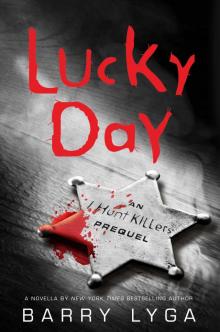 Lucky Day
Lucky Day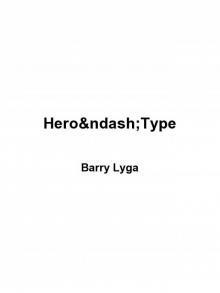 Hero-Type
Hero-Type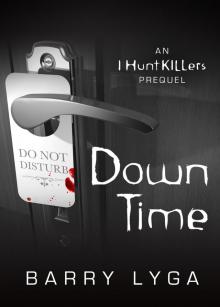 Down Time
Down Time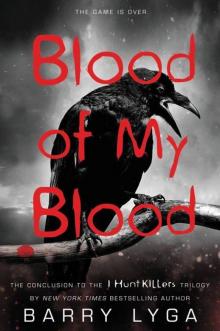 Blood of My Blood
Blood of My Blood Goth Girl Rising
Goth Girl Rising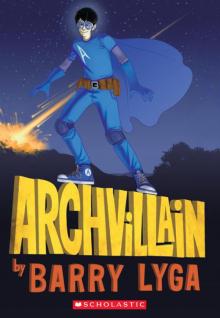 Archvillain
Archvillain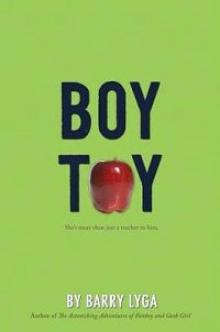 Boy Toy
Boy Toy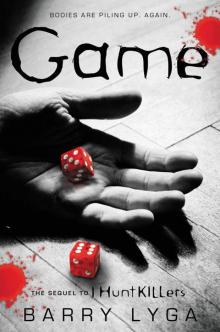 Game
Game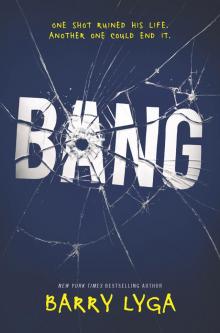 Bang
Bang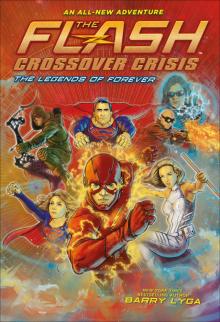 The Legends of Forever
The Legends of Forever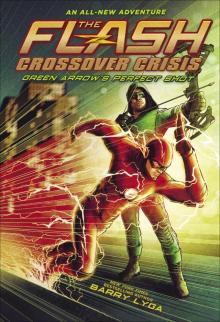 The Flash: Green Arrow's Perfect Shot
The Flash: Green Arrow's Perfect Shot The Flash: The Tornado Twins
The Flash: The Tornado Twins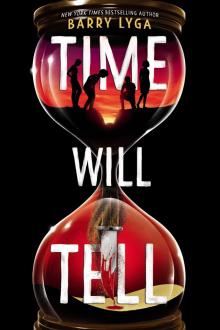 Time Will Tell
Time Will Tell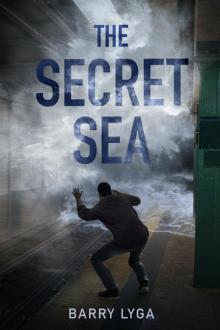 The Secret Sea
The Secret Sea The Hive
The Hive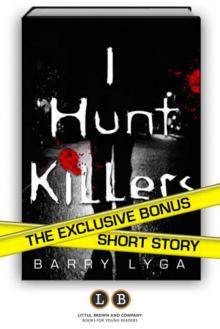 Career Day
Career Day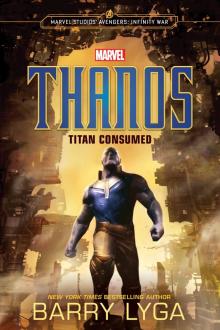 MARVEL's Avengers: Infinity War: Thanos
MARVEL's Avengers: Infinity War: Thanos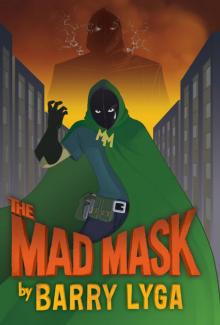 The Mad Mask
The Mad Mask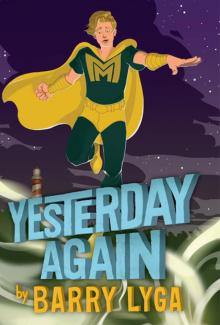 Yesterday Again
Yesterday Again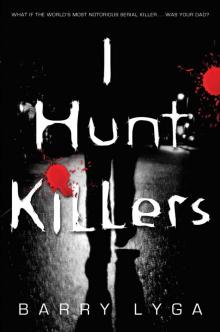 I Hunt Killers
I Hunt Killers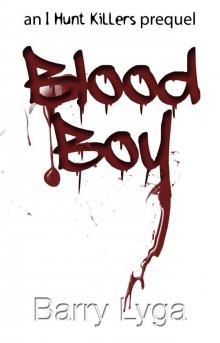 Blood Boy
Blood Boy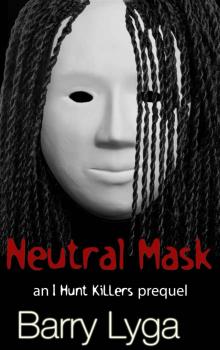 Neutral Mask
Neutral Mask The Astonishing Adventures of Fanboy and Goth Girl
The Astonishing Adventures of Fanboy and Goth Girl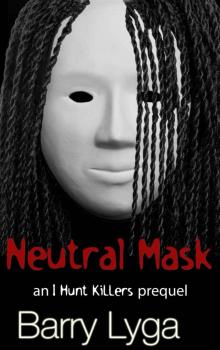 I Hunt Killers Neutral Mask
I Hunt Killers Neutral Mask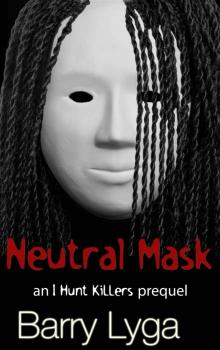 Neutral Mask: an I Hunt Killers prequel
Neutral Mask: an I Hunt Killers prequel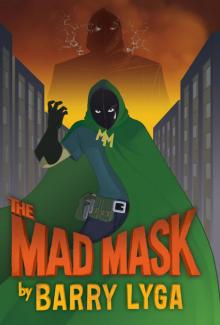 Mad Mask
Mad Mask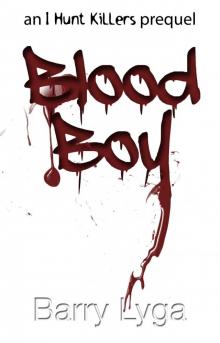 Blood Boy: an I Hunt Killers prequel
Blood Boy: an I Hunt Killers prequel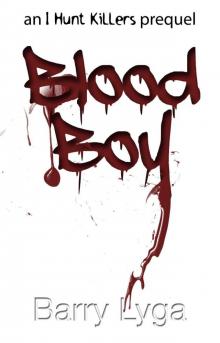 I Hunt Killers Blood Boy
I Hunt Killers Blood Boy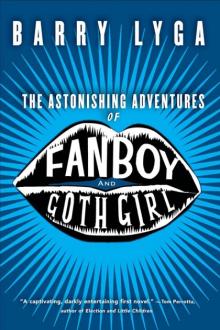 The Astonishing Adventures of Fan Boy and Goth Girl
The Astonishing Adventures of Fan Boy and Goth Girl